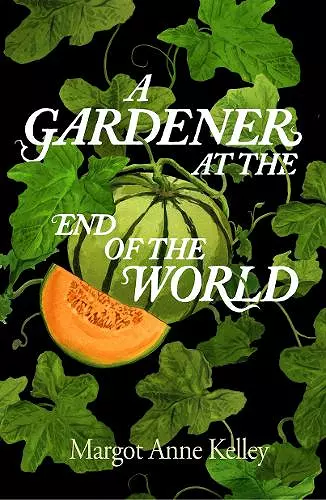A Gardener at the End of the World
How to Grow Hope in a World on Fire - A Year of Seeds, Pandemics, and the Quiet Power of Growing Something True
Format:Hardback
Publisher:David R. Godine Publisher Inc
Published:16th May '24
Should be back in stock very soon

What does it mean to plant a garden when the world feels like it’s ending?
In a year marked by uncertainty, fear, and isolation, Margot Anne Kelley turned to her garden for answers. A Gardener at the End of the World is a deeply personal and reflective journey through seed-saving, suburban gardening, and the strange comfort of growing food during a global pandemic.
Written with equal parts curiosity and care, this modern gardening book explores how seeds carry not only the promise of life but also the memory of history, culture, and resilience. From the link between agriculture and pandemics to the quiet joy of planting something hopeful in uncertain times, Kelley crafts a meditation on what we choose to preserve—and what we must let go.
This beautifully written volume makes a thoughtful gardening gift for anyone who finds meaning in dirt under their fingernails, beauty in a sprouting seed, or solace in the rhythm of the seasons. With its lyrical prose and deep insight, it stands proudly among essential garden books and contemporary nature writing.
Ideal for fans of literary English garden books , this is more than a journal of lockdown life — it's a quiet manifesto for cultivating hope, connection, and wonder in an age of disruption.
What Readers Will Learn:
—The surprising historical links between agriculture and disease.
—Why saving heirloom seeds matters for biodiversity and cultural memory.
—How suburban gardening became an act of resistance and healing during the pandemic.
—Reflections on language, time, and the meaning of “essential”.
—Insights into the emotional and philosophical side of growing food.
Perfect for readers who find solace in growing something real during surreal times.
One of the Best Gardening Books of the Year—
—Washington Gardener
“A Gardener at the End of the World serves as both a reflection on the shared experiences of the pandemic and a celebration of the ways in which the human spirit can find solace and growth in nature's embrace.”
—Booklist
“A book of quiet revelations and the strength that comes from endurance...Kelley finds small moments of the miraculous and transcendent.”
—Maine Sunday Telegram
“Detailed, engaging, and well-researched . . . A well-written chronicle of a gardening year, a pandemic, and their intertwined histories. Will appeal to a broad range of readers.”
—Library Journal
“A necessary and essential read . . . kept me engaged from the very first page.”
—Bangor Daily News
“Kelley transforms musings about a gardening hobby into a rich—and richly instructive—historical journey through human history. An eloquent and thought-provoking narrative.”
—Kirkus
“This book is a growing thing, concerned with the sounds a house makes as it wakes from winter dormancy, with ‘the music of moisture softening a seed coat, of germ expanding, growing so plump the coat eventually cracks.’ In A Gardener at the End of the World, Margot Anne Kelley grows onions and potatoes, melons and herbs, daffodils and word histories and the stories of life during a plague year. Like Janisse Ray’s The Seed Underground: A Growing Revolution to Save Food, this book is a journey through space and time to discover how humans and plants have shaped each other. I’ll never look at a loaf of bread the same way after reading Kelley’s lovely ode to Red Fife wheat. Kitchen gardens are stocked with histories, and Kelley reminds us to share and savor those stories lest they vanish.”
—Joni Tevis, author of The World Is On Fire
“More than merely a gardener’s journal of the plague year, Margot Anne Kelley’s meditations on plant histories and plagues, written in the face of the 2020 pandemic, make the intertwined histories of human endeavor and of our basic food staples seem at once precarious, miraculous, and ultimately beautiful. In Kelley’s hands, the carrot, the tomato, the apple all become luminous records of human trade, reminding us that our desires and our diseases—our beauty and the banes we seek to abolish—are inextricably entwined. This is a rich book—one to savor.”
—Tess Taylor, author of Work & Days and editor of Leaning Toward Light: Poems for Gardens and the Hands that Tend Them
ISBN: 9781567927344
Dimensions: 203mm x 133mm x 25mm
Weight: unknown
240 pages